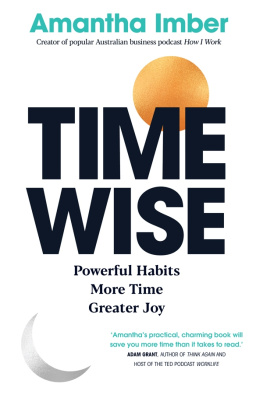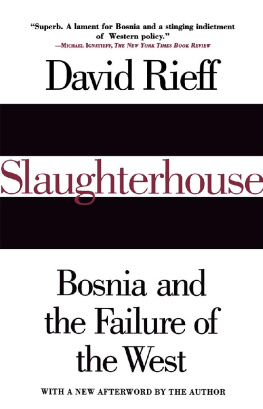The Anthem Companion to Philip Rieff
ANTHEM COMPANIONS TO SOCIOLOGY
Anthem Companions to Sociology offer authoritative and comprehensive assessments of major figures in the development of sociology from the last two centuries. Covering the major advancements in sociological thought, these companions offer critical evaluations of key figures in the American and European sociological tradition and will provide students and scholars with an in-depth assessment of the makers of sociology and chart their relevance to modern society.
Series Editor
Bryan S. Turner, City University of New York, USA / Australian Catholic University, Australia / University of Potsdam, Germany
Forthcoming title
The Anthem Companion to Gabriel Tarde
The Anthem Companion to Philip Rieff
Edited by Jonathan B. Imber
Anthem Press
An imprint of Wimbledon Publishing Company
www.anthempress.com
This edition first published in UK and USA 2018
by ANTHEM PRESS
7576 Blackfriars Road, London SE1 8HA, UK
or PO Box 9779, London SW19 7ZG, UK
and
244 Madison Ave #116, New York, NY 10016, USA
2018 Jonathan B. Imber editorial matter and selection;
individual chapters individual contributors
The moral right of the authors has been asserted.
All rights reserved. Without limiting the rights under copyright reserved above,
no part of this publication may be reproduced, stored or introduced into
a retrieval system, or transmitted, in any form or by any means
(electronic, mechanical, photocopying, recording or otherwise),
without the prior written permission of both the copyright
owner and the above publisher of this book.
British Library Cataloguing-in-Publication Data
A catalogue record for this book is available from the British Library.
ISBN-13: 978-1-78308-152-3 (Hbk)
ISBN-10: 1-78308-152-X (Hbk)
This title is also available as an e-book.
CONTENTS
Jonathan B. Imber
John Carroll
John Dickson
Steven Grosby
Samuel Heilman
Howard L. Kaye
Richard H. King
Elisabeth Lasch-Quinn and Matthew D. Stewart
James Poulos
Charles Turner
Peter Y. Paik
Alan Woolfolk
Jonathan B. Imber
Philip Rieff (December 15, 1922July 1, 2006) published three major works during his lifetime, and several others at the very end of his life and posthumously. Freud: The Mind of the MoralistTriumph of the Therapeutic, was also published after Rieffs death.
Very little secondary commentary exists on Rieffs theories as compared to other social and cultural theorists of similar stature and importance. One book-length study exists written by a Dutch scholar Antonius A. W. Zondervan This volume of essays addresses Rieffs work, a decade after his death, and it seeks to redress the scarcity of writings on Rieffs vision in particular as a sociological and cultural theorist, but also as a teacher.
This brief introduction is intended to argue that Rieff was not characteristically ambitious in the sense of seeking wider and more lucrative audiences.therapeutic encounter, has made the ineffable concrete and the unsaid put into words, leaving less and less that is any longer mysterious or unspoken.
What Rieff called political theatre therapeutic, but social security is not equivalent to safe spaces. Rieff knew the difference between what was owed to those who have worked a lifetime and those who camp out in fine digs for four years. What would Philip Rieff think of the world mess now that he is no longer a living witness to a precinct that can no longer embrace and cherish the kind of demanding personal presence he embodied? The age of such teaching authority has passed.
This volume is a tribute not only to a great mind but also to the passing of the persona of a great teacher of sociological theory, one who made the life of the mind a searchlight for much more than the obvious. It stands to reason that he will be rediscovered again and again, both as a formidable theorist as well as a guide to the perplexed.
Notes
A demonstrable instance of this commitment was his regular participation in the life of the university. At the University of Pennsylvania, in 1968, Rieff wrote a letter to the editor of the Daily Pennsylvanian, the Universitys student-run newspaper, with the headline, Grief from Rieff, which read as follows: Sir: The best thing that could happen to the intellectual life of the University of Pennsylvania would be the abolition of the fraternity system. That system has been, and must remain, anti-intellectual a contradiction of the very idea of a University. The fraternity houses along Locust Walk ought to be transformed into residential experimental colleges. Philip Rieff, Benjamin Franklin Professor of Sociology (September 30, 1968, 2).
Dagmar Herzog, Cold War Freud (New York: Cambridge University Press, 2017), 11.
Joel Whitebook, Freud: An Intellectual Biography (New York: Cambridge University Press, 2017), 243. In another book Todd Dufresne cites Rieffs book on Freud as follows: P. Rieff (1961). Freud: The Mind of the Moralist (with S. Sontag). New York: Doubleday. Dufresne, The Late Sigmund Freud (New York: Cambridge University Press, 2017), 267.
The popular success of Christopher Laschs The Culture of Narcissism (1979) and Allan Blooms The Closing of the American Mind (1987) inspired a humorous envy on Rieffs part, more in keeping with a prideful sense of vindication.
Always, my use of the name therapeutic has followed Philos by inversion. Philip Rieff, Fellow Teachers/Of Culture and Its Second Death (1973) (Chicago: University of Chicago Press, 1985), 159: 105n.
Rieff, Fellow Teachers, 16970.
William Deresiewicz, On Political Correctness, American Scholar 86, no. 2 (2017): 3042.
John Carroll
One of Philip Rieffs favourite paintings was Poussins The Adoration of the Golden Calf, in the National Gallery in London. It shows an angry Moses thundering down the mountain about to dash the stone tablets of the law to pieces in outrage at his fickle people dancing around and worshipping a huge statue of a golden calf. Rieff strongly identified with this Moses, the bearer of the law the Thou Shalt Nots sent from God. In Poussins scene, the people renounce the authority of the Old Testament divinity and turn to the leisurely fun of dancing and feasting, worshipping a pagan pleasure god. Poussin had provided an uncanny parable for Rieffs own working life.
To my mind, the most striking thing about Rieffs work, when one stands back to take stock, is the deadly seriousness with which it takes culture, and the role of the cultural elites, or the clerisy its custodians. Culture is the housing structure for God, and his later sublimations a structure without which he could not exist. Rieff stands diametrically opposite to the mainstream of the times, which set about deconstructing culture, turning it from the central bearer of the truths that matter to a mask for power, exploitation and disadvantage. The task of culture for Rieff is to enchant and repress; the task for most of his academic contemporaries was to disenchant and liberate.







